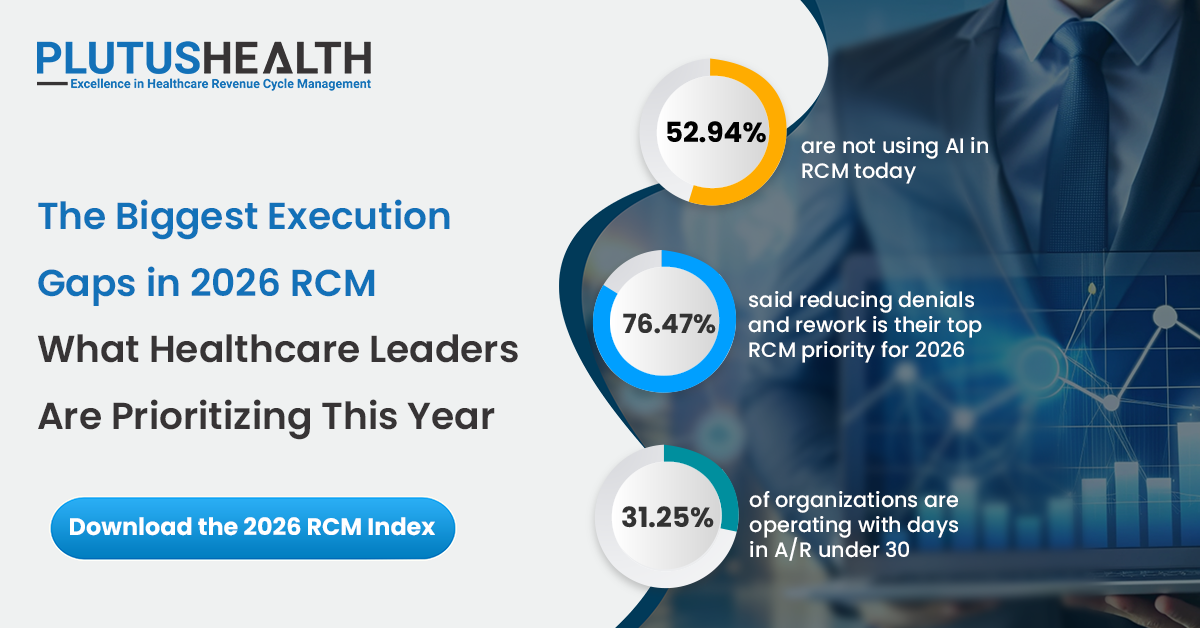Importance of Revenue Cycle Management in Healthcare: Business, Facility and Patient Benefits
What Is the Purpose of Revenue Cycle Management?
Revenue cycle management optimizes every step of customer billing and payment processing. That leads to higher revenue and lower costs. RCM also allows you to simplify processes, reduce claim denials, and improve the patient experience.
In this article:
- The importance of RCM in the healthcare industry
- How healthcare organizations use RCM in each step of the revenue cycle
- The benefits of RCM
- The challenges of RCM
Revenue cycle management helps healthcare organizations get paid for patient services. It reduces errors in the healthcare authorization process. It smooths out the billing and collections process. And it improves care for patients.
The goal of good revenue cycle management is to:
- Increase healthcare facility revenue
It does this in many ways, including increasing efficiencies in accounts receivable collection and decreasing errors that otherwise lead to lost income.
Studies show that minor technical issues cause 90% of health insurance claim denials. An example is missing information in a patient’s chart. Good revenue cycle management can prevent those issues. Studies have also shown that the average hospital can increase its annual revenue by $5 million through claim denial prevention.
- Simplify and streamline processes
Good RCM allows your organization to create an overall strategy for more efficient processes. These processes start with a patient first requesting an appointment and continue through your organization collecting final payment. RCM results in less wasted effort, resources, and errors.
- Increase revenue cycle visibility
An important benefit of RCM is that it allows your organization to examine data and track metrics on your revenue cycle. This will enable you to see inefficiencies and problems and correct them.
- Give a healthcare organization an advantage over competitors
Good RCM can provide your organization with a competitive advantage. More efficient revenue cycle processes mean your organization can improve patient care and better satisfy patients.
Mark Thompson, Vice President of Revenue Cycle with Advanced Urology, an Atlanta-based physician practice group, says good RCM offers many benefits. It especially helps a healthcare organization’s bottom line.
RCM provides many benefits to healthcare organizations. For example, it reduces errors and payment denials from insurance companies and government payers. It improves efficiencies, reduces costs and increases revenue. It also improves patient care.
Here is a comprehensive of all the benefits of healthcare revenue cycle management:
- Reduces errors
RCM significantly reduces errors in the authorization and claims preparation process. It also can detect any errors and fix them quickly. This allows quicker payment. It also reduces costs, as the organization doesn’t need to spend time and resources detecting and correcting errors further into the process.
- Points out missing information in patients’ charts
Many insurance denials can come from missing information about the patient, procedure, or treatment. RCM ensures the healthcare organization submits all appropriate information about the patient and treatment.
- Reduces denials
RCM significantly helps organizations in denial management by reducing errors and providing all needed information. It reduces claim denials by both insurance companies and government payers.
Insurance company denials are too common and expensive for healthcare organizations.
- Increases claims paid on the first submission
RCM helps healthcare organizations reduce errors and provide all needed information in their first claim submission. That means more claims get fully paid on that first submission.
- Increases organizational efficiency
Good RCM allows healthcare organizations to improve and automate various tasks they may have tried with different systems and departments. RCM makes the entire process more effective and efficient.
- Simplifies processes
A good RCM process is more efficient and easier for healthcare providers and administrators to use. Healthcare administrators spend less time dealing with repeated questions from insurance companies over several weeks or months about a denied claim.
- Decreases administrative burden and saves staff time
As RCM increases efficiencies and simplifies processes, it significantly lowers the administrative burden on a healthcare organization. The staff will spend less time focusing on claim denials. And the staff will spend less time on appointment scheduling, getting intake information from patients, and payment processing.
For example, Thompson says, ‘it decreases the need for that staff on the back end to do all of that busy work to fight all these denials.”
- Speeds up revenue collection processes
Good RCM speeds up collecting of payments owed to a healthcare organization. The process automatically tracks payments due and increases the chances of collecting the payments on time.
That’s especially important in recent years as more patients have high-deductible insurance plans. That means organizations often need to collect full payment from patients – which can take even longer than from insurance companies.
- Reduces overtreatment
Medical providers can sometimes “overtreat” patients by ordering too many tests or other services that aren’t necessary or helpful. RCM processes monitor and reduce this.
- Reduces healthcare fraud
Inaccurate billing – intentional or unintentional – can lead to fraud investigations of healthcare organizations. RCM focuses on accuracy in coding, data collection, and billing. This helps prevent inaccuracies or problems that can lead to fraud or fraud investigations.
- Reduces patient fraud
Patient fraud can also be an issue for healthcare organizations. Patients may mispresent their insurance coverage to receive treatment. Or patients may use someone else’s personal info, including a Social Security number, to obtain health services. That’s called medical identity theft and is becoming more common.
Good RCM includes verification and authorization to reduce the chance of fraud significantly.
- Enables greater visibility of process problems and inefficiencies
Good RCM helps a healthcare organization better understand all its insurance authorization and revenue collection processes. It will highlight any existing issues, recurring mistakes, and inefficiencies. That allows organizations to improve their revenue cycle processes and follow RCM best practices.
- Improves patient care
RCM improves an organization’s revenue collection processes and improves patient care. It reduces costs and increases revenue, freeing up more resources for patient care. And it allows providers to spend more time focusing on patients – rather than on questions and issues with billings and payments.
It also helps ensure that patients see the right provider and get the right treatment from their first contact with the healthcare organization.
“I really think that with good clean (RCM) scheduling up front, that's really what sets this whole machine in motion moving in the right direction,” Thompson says. “If things are scheduled correctly — meeting with the right doctor with the right procedure — and if we're not having to make a lot of those changes at the last minute, that allows our patient care team to kick things off in the right direction.”
- Enhances patient experience
Beyond improving treatment, RCM can improve the entire patient experience with a healthcare organization. It simplifies making an appointment, finding the right provider and answering insurance questions, among other things.
- Can help healthcare providers transition to value-based reimbursement practices
The U.S. healthcare industry is trying to move away from a fee-for-service reimbursement model to value-based reimbursement. That means the industry is trying to discourage payments based on a service – a provider ordering a test, for example. Instead, it encourages payments based on a patient’s overall health as a result of the healthcare provided.
RCM helps providers better transition to value-based reimbursement. It helps healthcare organizations analyze patient data and other data showing how the organization is giving patients the best care possible.
- Reduces costs
RCM simplifies processes and increases efficiencies. It reduces administrative work and errors. And that all means it reduces costs for healthcare organizations.
Government data showed that the U.S. spent about $3.8 trillion on healthcare in 2019. Almost $1 trillion of that was on administrative work.
A 2021 McKinsey & Company study found that simplifying and automating certain activities – including payment transactions and patient services, which RCM does – could save the healthcare industry $265 billion per year. That’s $1,300 for each adult in the U.S.
- Increases revenue
RCM reduces insurance denial of claims. It reduces errors and makes revenue collection more efficient and effective. All that, along with other process improvements that RCM brings, increases revenue for healthcare organizations.
Whether organizations perform RCM with internal staff or outsource it to RCM experts, “you can way out-perform on the revenue side,” Thompson says.
Thompson says that even a 0.5% improvement in revenue collection for an organization that bills tens or hundreds of millions of dollars is significant money. But good RCM helps smaller organizations as well.
“I think the benefit of good RCM is that you’re going to collect closer to 99 or 100% of the revenue that you are legitimately owed.”
RCM can improve every step of the revenue cycle. It improves how organizations get information from new patients. It confirms patient insurance. And it improves how organizations get proper approval for treatment, among other benefits.
Here are details on how RCM can help at every step in the revenue cycle:
- Provider credentialing and eligibility confirmation
Insurance companies and government payers require a healthcare provider to have proper credentials and be eligible to provide services. RCM processes help organizations ensure credentials and eligibility.
- Pre-authorization and verifying eligibility for patients
When a patient makes an appointment with a healthcare provider, the provider collects information from the patient, including any health insurance coverage. Denials occur later in the process because of inaccurate information at this step.
“There are certain denials that rear their ugly head on the back end — that stem from poor patient registration, poor scheduling, bad verification of eligibility,” Thompson says. “And really, those are some of the most insidious denials because those are the ones that oftentimes can't be overcome.”
- Proper coding of medical services
When a healthcare organization provides medical services, it must provide the proper code to insurance companies and government payers for those services. Every specific treatment and service has its own code that helps determine what insurance companies or the government will pay for that service.
Many mistakes happen with those codes, which lead to denials of payment. RCM helps ensure that providers give appropriate codes.
- Claim submission
After a healthcare organization has provided treatment and determined the proper code, it sends the claim to the insurance company or government payer for payment. RCM ensures this process happens quickly and accurately.
- Claim management
After the healthcare organization submits the claim, it must continue tracking and managing it. Among other things, it must track and resolve any delays, questions on the claim, or denials from the payer. Delays in that process can mean delays in payments or no payments at all. The healthcare organization also must note any payments on the claim. RCM is integral in helping organizations track and manage this process.
- Payment collections
After the payer has approved the claim, it sends payment to the provider. The healthcare organization must track that payment. It must also reach the patient for any co-pay due for the medical service. And it must track the collection of that payment.
RCM is vital in making this process more streamlined and efficient.
- Analysis and review
Healthcare providers should continually analyze all treatment and claim data. This will help them understand any obstacles to quick and appropriate payments. RCM services and software help providers perform that data analysis. And good RCM also prevents most process problems that can happen without RCM.
Benefits of Revenue Cycle Management by Step
The challenges of revenue cycle management revolve around constantly changing rules. It takes time and expertise to keep up with evolving government and insurance company rules. Also, human error still causes problems even in good RCM systems. Patients may provide wrong information, or the staff may make mistakes.
Independent RCM expert organizations are especially adept at dealing with and helping providers overcome some of the most common revenue cycle roadblocks. For that reason, many organizations outsource much or all RCM work to RCM experts.
Efficient Revenue Cycle Management Outsourcing
Plutus Health offers full-cycle RCM services to help our clients simplify their processes, lower their payer denial rate, improve collections, and increase revenue. We have created a unique process that combines machine learning technology and robotic process automation to ensure we efficiently address our clients’ most difficult challenges.























































